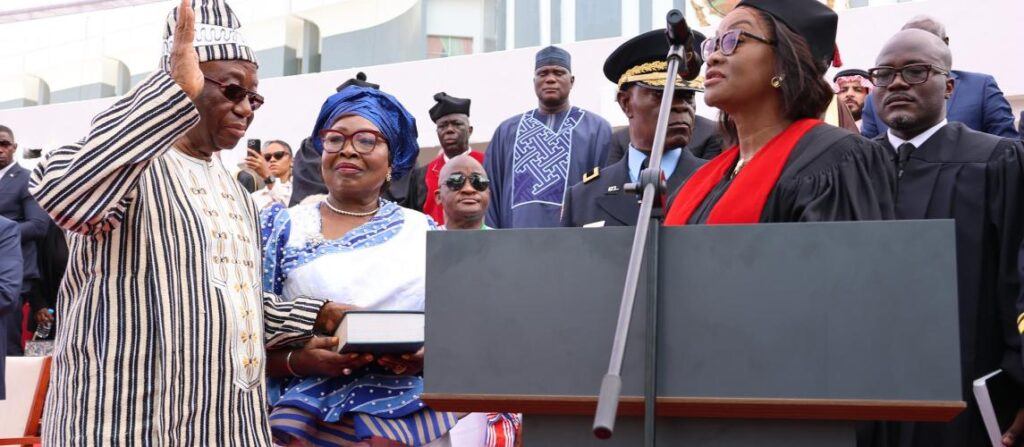
Liberia’s New President Outlines Bold Vision for Transformation
Liberia’s newly elected president, Joseph Nyuma Boakai, delivered his inaugural address yesterday, laying out an ambitious policy vision for a developing nation. While recognizing immense developmental challenges from recent civil wars and economic mismanagement, President Boakai struck a tone of hope and determination to profoundly transform Liberia’s prospects. Central to his plan is rallying national unity and attacking corruption in order to implement a sweeping agenda tackling deep structural problems in Liberia’s economy, institutions, and infrastructure.
Smooth Democratic Transition
In thanking outgoing leaders like President George Weah for overseeing Liberia’s latest democratic transition of power, Boakai celebrated the consolidation of democratic norms since the end of the 2003 civil war. After credible elections with high voter enthusiasm and turnout, President Boakai has inherited the citizenry’s mandate and hunger for change after years of perceived failings in governance and economic opportunities. He also highlighted longstanding international support, as both peacekeeping interventions and aid were crucial in pulling Liberia from the brink during back-to-back devastating conflicts.
Vision for National Reconciliation
However, President Boakai noted that this last election cycle also exposed some sharp political and societal divides in Liberia along party, ethnic, and geographic lines. Making national reconciliation and forging unity across these differences a cornerstone of progress under his leadership, Boakai vowed to be “president of all Liberians,” regardless of background. He warned that long-standing issues of marginalization of indigenous groups by former Americo-Liberian elites have balkanized development and hindered the construction of a cohesive national identity. By contrast, he wants to blur differences to cultivate solidarity of purpose in tackling poverty, youth unemployment, infrastructure gaps, and other chronic problems holding Liberia back from realizing its potential.
‘ARREST’ Development Plan
The centerpiece of President Boakai’s strategy is an economic transformation and mass job creation blueprint dubbed ‘ARREST’: Agriculture-led, Road-building, Rule of law reforms, Education restructured, Sanitation upgrades, and Tourism sector activation. Each complements the other. For example, prioritizing agriculture as the primary economic engine will require expanding road connectivity between rural farmers and urban markets, improving fundamental education for a skilled workforce, upholding contract rights and safety for commercial activities, providing proper water and health facilities to nurture human capital, plus scenic eco-tourism to provide additional livelihoods.
This multi-sector nation-building approach tries to address deep dysfunctions. Decades of conflict and poor leadership ruined infrastructure. Systemic corruption violated public trust. Factions exploited societal divisions. Yet Liberia retains fundamental advantages that Boakai wants to be restored: relatively fertile lands, rain forests yielding valuable commodities, and a youthful population once equipped with skills and opportunities that can drive innovation and growth.
Confronting Past Demons
Critical to reconciliation and rule of law credibility, President Boakai also controversially committed to pursuing transitional justice through a dedicated War and Economic Crimes Court. This special court addressing war-time human rights abuses that left 250,000 dead has been debated for years but never instituted over fears of re-opening old wounds. However, Boakai argued Liberia can never fully move forward harboring impunity nor letting victims’ trauma fester. Though cautioning against politicized reprisals, he called national closure through accountability processes a necessity. This stance drew quick praise from human rights advocates but risks backlash from ex-warlords in society.
Rallying Collective Action
Achieving such wholesale reversals of fortune relies on national collective effort and responsibility in Boakai’s worldview. He thus appealed throughout his address for collaboration across political, social, and economic lines, both within Liberia and externally. Beyond fighting corruption, he expects public servants to raise governance standards and performance. Private companies need to make constructive investments aligned with Liberia’s needs, not exploitative ones. Civil society should inform policymaking. Youth have opportunities to shape the country they will soon inherit as leaders. And the vast diaspora must directly lend expertise and resources to national development. Even long-time ally America should elevate relations beyond aid dependency towards equal cooperation on democracy, climate change, and global security.
Altogether, President Boakai thus set monumental expectations for himself, his government, and Liberia’s population at large to profoundly transform the country over his 6-year term. Success hinges on simultaneously improving economic livelihoods and national consciousness to tap Liberia’s still-underutilized human and natural wealth. With references invoking biblical salvation and Liberia’s national anthem, Boakai expressed unyielding optimism that society can confront past demons, overcome divisions, and work in “union strong” towards progress if citizens share his hunger for overdue generational change.